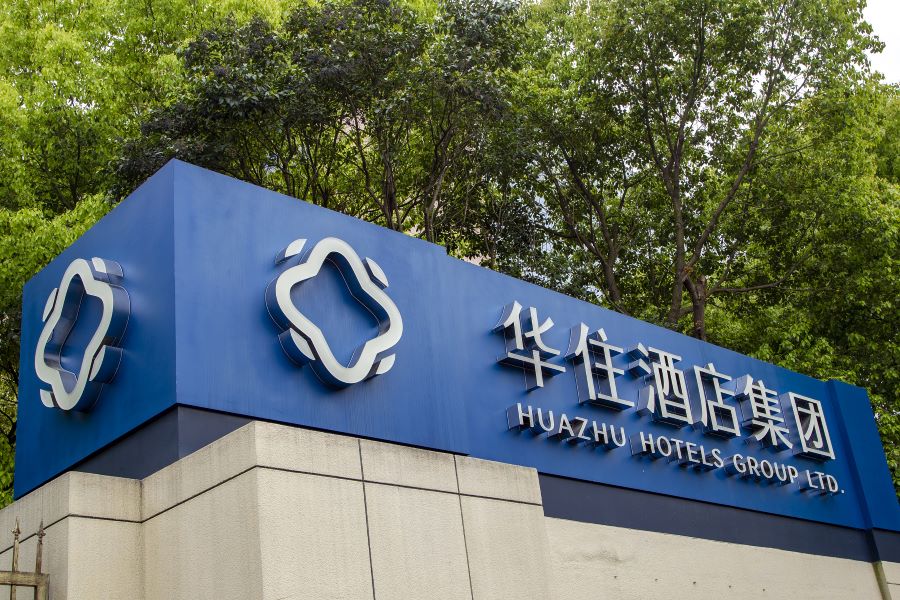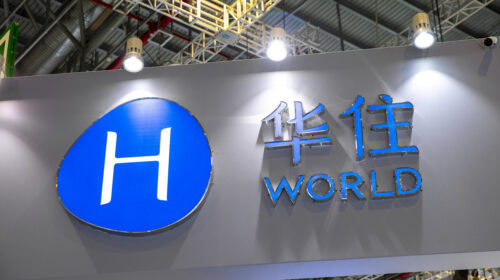Huazhu Founder Steps Down as CEO a Third Time, as Hotelier Bounces Back from Covid

Ji Qi’s resignation as CEO comes as leading Chinese hotel operator reports strong rebound in first half of 2021
Key Takeaways:
- Huazhu founder Ji Qi is stepping down as the company’s CEO for the third time, following its latest period of adjustment
- Observers believe that despite relinquishing the CEO title, Ji will continue to call the shots from behind the scenes in his remaining role as chairman
By M.C. Ho
With its Covid-19 outbreak under control, China’s hotel industry has largely recovered on a steady track. Against a backdrop of strong second quarter results reflecting its own comeback, Huazhu Group Ltd. (HTHT.US, 1179.HK), China’s first multi-brand hotel operator, has announced that founder Ji Qi will step down from his role as CEO for the third time next month.
Company veteran Jin Hui, who joined Huazhu in 2005, will take over the post, taking charge of day-to-day management and operations with president Liu Xinxin, according to the announcement issued last week.
Despite words of reassurance that Ji would retain his chairmanship and focus on long-term strategy, as well as remain as the company’s spiritual leader, Huazhu’s shares fell after the announcement, reflecting concerns about the move.
Varied Performances
Huazhu’s revenue in the first half of the year rose 49% to 5.91 billion yuan ($915 million), according to its latest quarterly results. It posted a 130 million yuan profit for the period, reversing a 2.68 billion yuan loss a year earlier as the industry suffered at the height of China’s outbreak. As conditions improved, the company added 399 new properties in China in the first half of the year, bringing its total to 7,004 with 667,700 rooms.
The company, which counts French hotel giant Accor (AC.PA) as a major strategic partner, outperformed many of its competitors during the period. In addition to its budget Hanting brand, the company also operates Accor’s Ibis budget hotel brand in China, among others.
BTG Hotels Group Co. Ltd. (600258.SH), a top Huazhu rival whose brands include Homeinns, reported its revenue rose 65% in the first half of the year to 3.14 billion yuan. Like Huazhu, BTG also returned to profitability during the period. But its 65 million yuan profit, which reversed a 690 million yuan loss a year earlier, marked a weaker rebound than Huazhu’s.
Budget hotel specialist Jin Jiang International (600754.SH) reported a much weaker 28.7% rise in revenue to 5.26 billion yuan in the first half of the year. Its profit for the period bucked the industry trend by plummeting 98.4% to 4.85 million yuan.
Despite its strong performance, Huazhu now trades at a large discount compared to its two large rivals. Such discrepancy is relatively common for U.S.-listed Chinese companies compared with their China-listed peers – a fact that has led many of the former to privatize and re-list at higher valuations back in their home market.
Huazhu has a price-to-earnings (PE) multiple of 20.7, based on its a current stock price of about $46 and analyst forecasts for a second-half profit of $2.22 per share. BTG is considerably higher at 38.6, based on its current price of about 22.4 yuan and forecasts for profit of 0.58 yuan per share this year. Jin Jiang is the highest at 62.6, based on market forecasts for 0.67 yuan per share this year and a recent stock price of around 42 yuan.
Despite Huazhu’s strong first-half performance, outgoing CEO Ji was cautious on the second half of the year. He said the uncertainties created by the epidemic may last longer than expected, forcing the company to deal with short-term business fluctuations. Moreover, the company must focus on penetrating further into China’s smaller cities and accelerate its development in mid- to higher-end markets. Ji also stressed the need to improve Huazhu’s organizational structure and bring in new talent to support its growth.
The reality is that Ji previously gave up his CEO title twice before the latest announcement. Each of his previous tenures was marked by major adjustments at the company he founded.
Back in August 2009, before the company went public, Ji gave up his CEO title the first time and retained the chairman’s position. But he returned to the nest three years later in 2012 amid an exodus of high-level managers. From there he would focus on trying to take the company more upscale from its traditional budget hotels into pricier offerings.
Then in May 2015, he gave up the CEO title again, only to return in November 2019 to assist the company in a move to go global with its purchase of the European luxury hotelier Steigenberger Hotels AG. Little did he know that not long afterwards, global travel would come to a screeching halt with the start of the global pandemic.
The company’s core China business has rebounded strongly with the outbreak largely under control inside the country, though the global market remains weak. Reflecting that, Huazhu reported hotels from the Steigenberger acquisition had average occupancy of just 24.4% in this year’s second quarter, well below the 82.3% occupancy rate for Huazhu’s core China hotels during that time.
Strategy Unchanged
Huazhu shares fell 2.7% to $46.98 the day Ji’s resignation as CEO was announced, and continued to decline in the following days to a several-week low, reflecting investor concerns over the ability of incoming CEO Jin to take the company forward in the face of fierce competition and cooling consumer sentiment caused by repeated Covid-19 outbreaks.
In fact, some believe that by holding on to the chairman’s title, Ji is simply handing over the reins to a new front man in the form of Jin Hui. They believe the company’s broader strategy will remain the same as Ji continues to guide the company from behind the scenes. But given that this is his third time leaving, how long will this latest departure really last? Will Ji come back for yet another round? The markets are waiting to see.
To subscribe to Bamboo Works free weekly newsletter, click here





